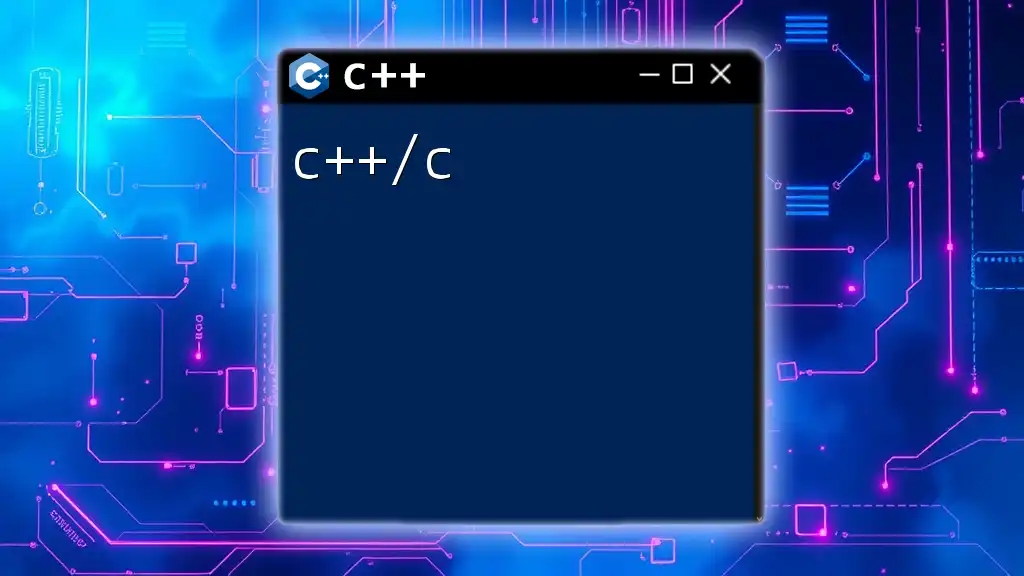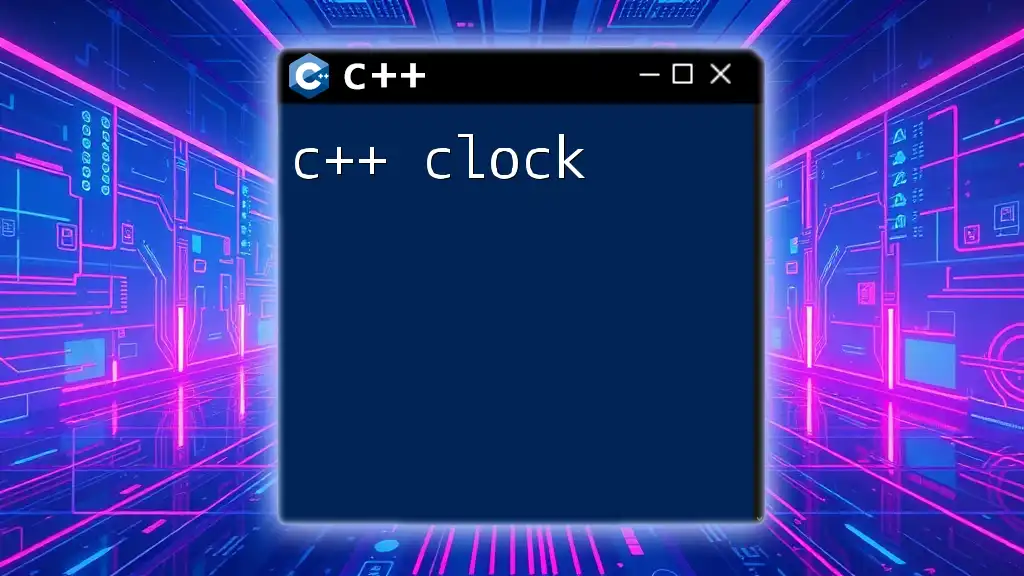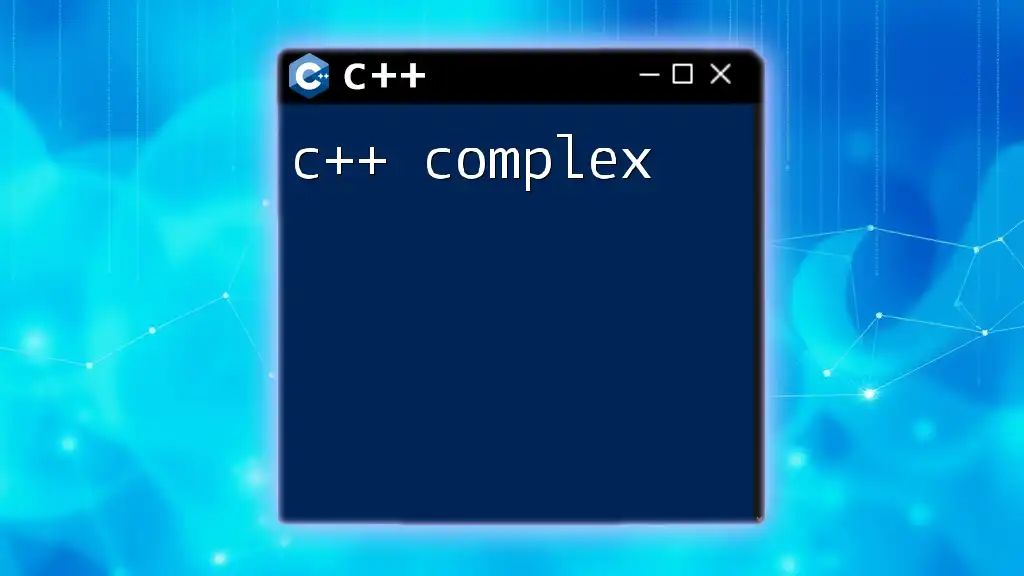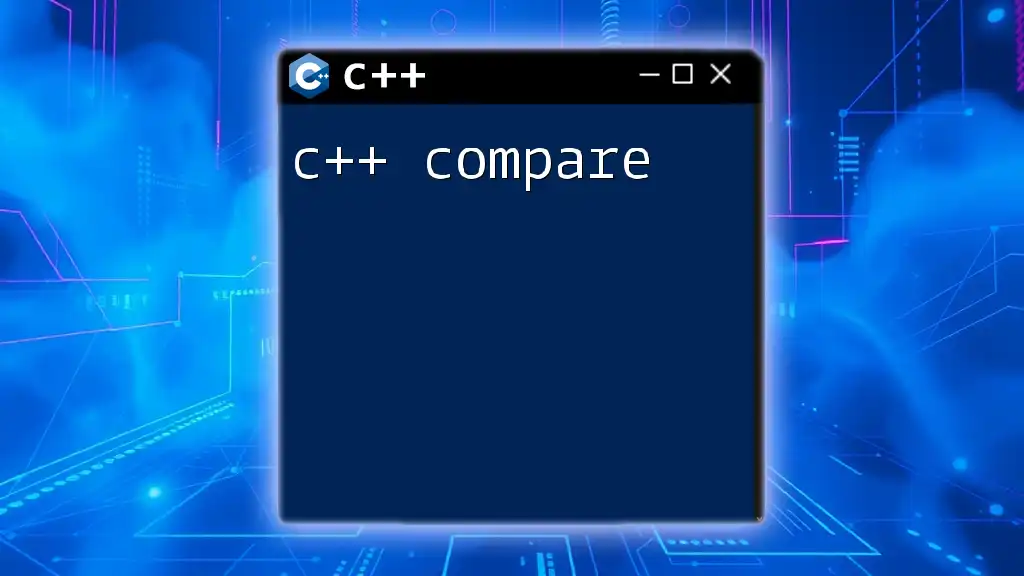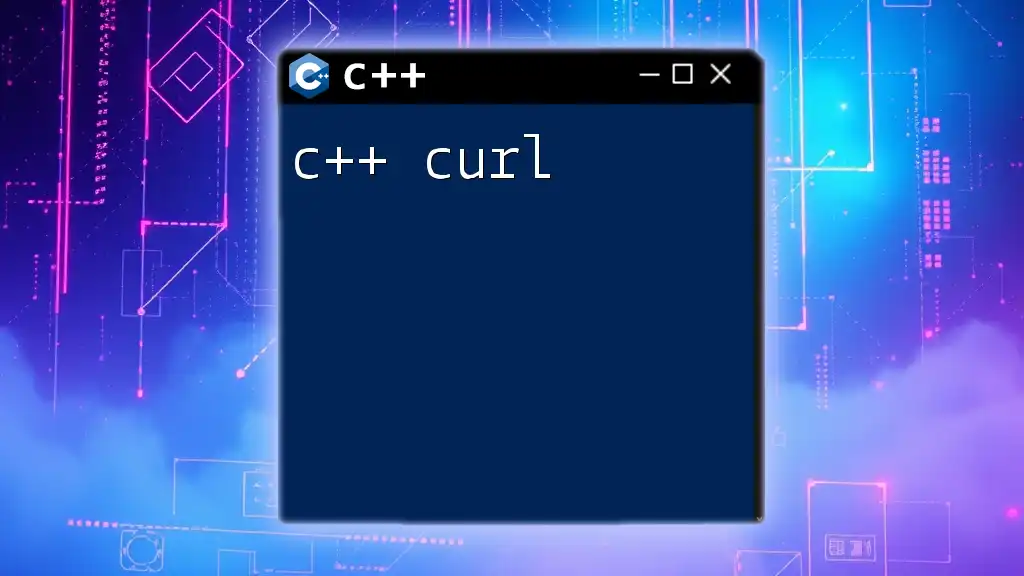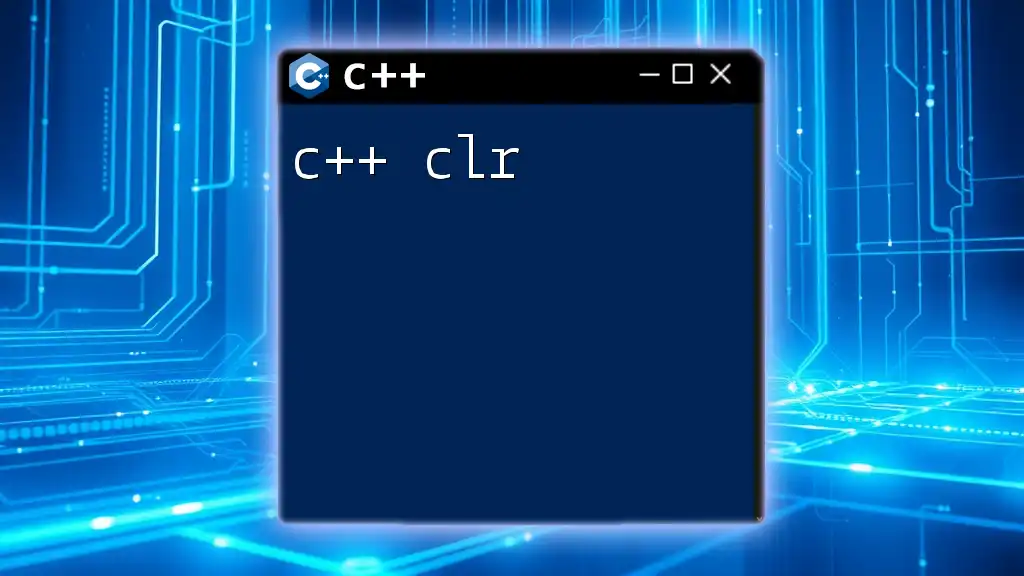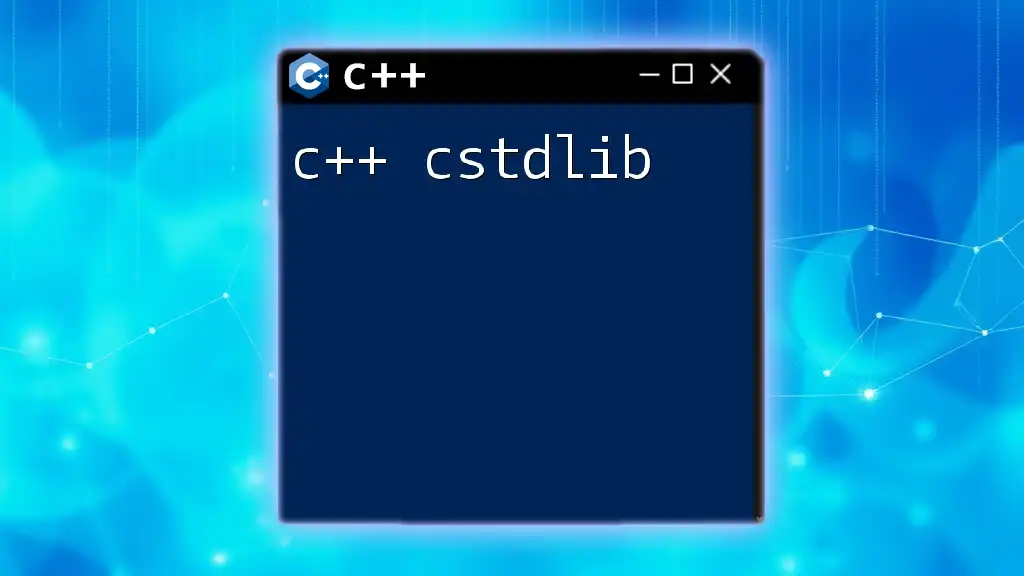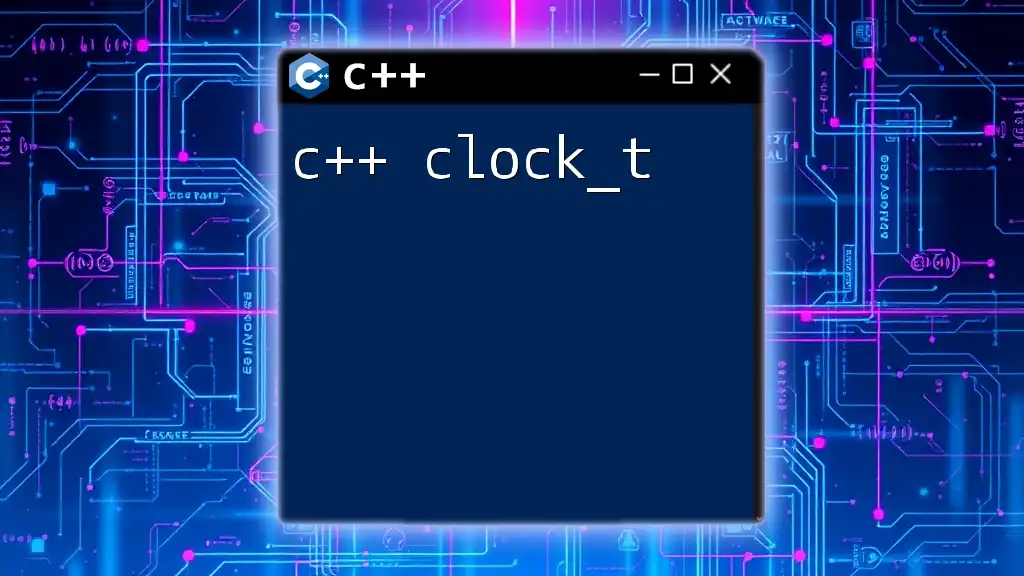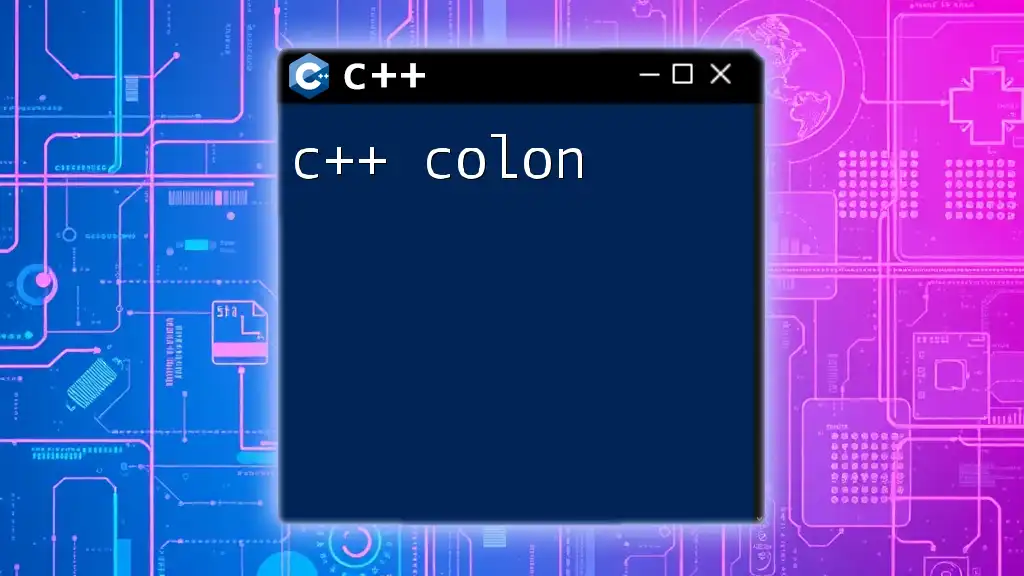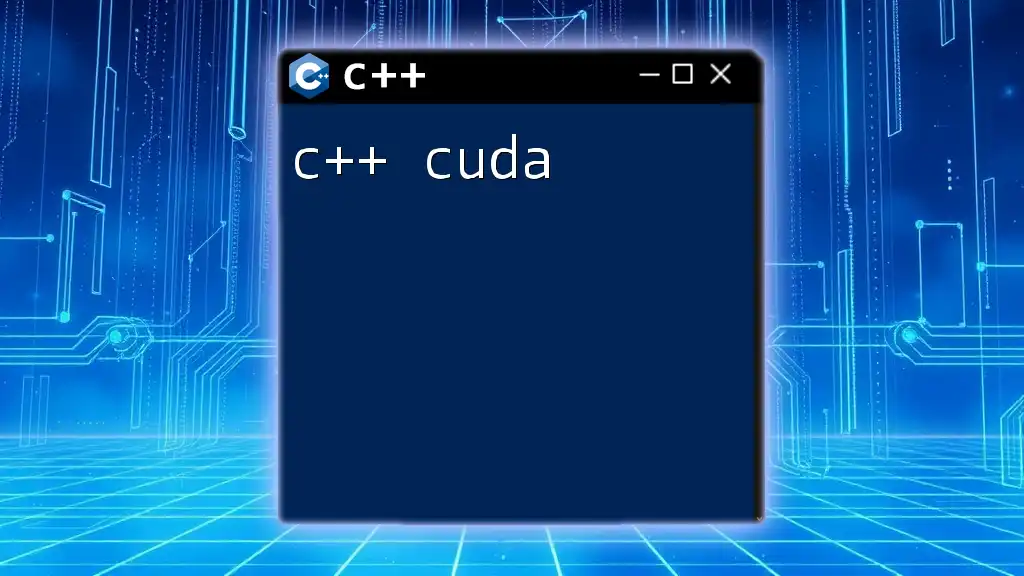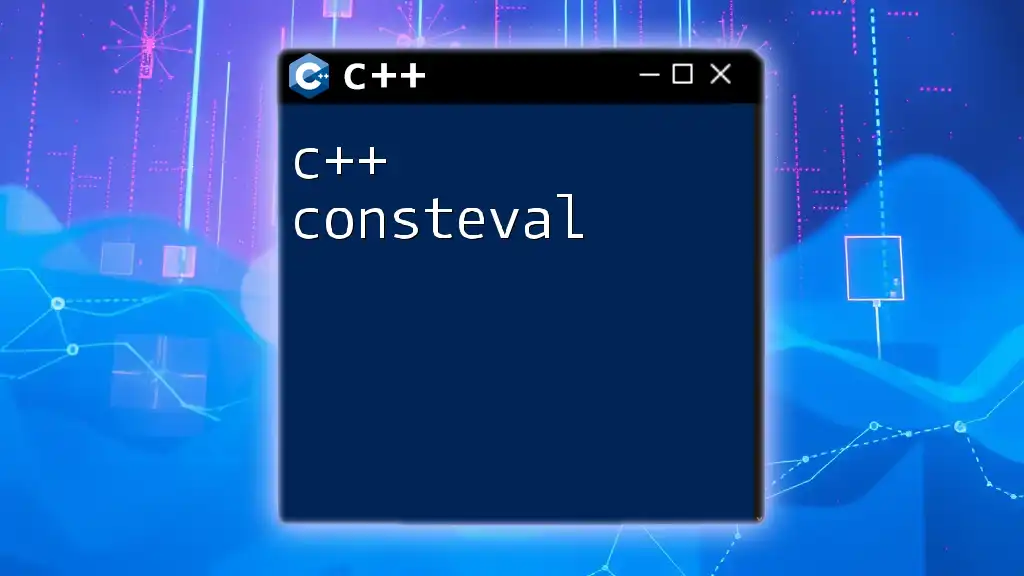C++ is a powerful programming language that enables developers to perform system-level programming and create high-performance applications, utilizing features like object-oriented programming and generic programming.
Here’s a simple example demonstrating a basic C++ program that outputs "Hello, World!" to the console:
#include <iostream>
int main() {
std::cout << "Hello, World!" << std::endl;
return 0;
}
Overview of C and C++
C and C++ are foundational languages in programming, with roots dating back to the early days of computer science. C, developed in the early 1970s, set the framework for powerful, low-level programming, while C++, introduced in the 1980s, built on C's strengths by adding object-oriented programming (OOP) features, enhancing code organization and reusability.
Differences between C and C++
C is a procedural programming language, which focuses on functions and procedures to write programs while relying heavily on function calls and data processing. Python is known for its simplicity and ease of readability, but compared to C, it offers less control over hardware and memory management. In contrast, C++ is primarily focused on objects, which bundle data and methods, allowing programmers to model and manage complex systems more intuitively.
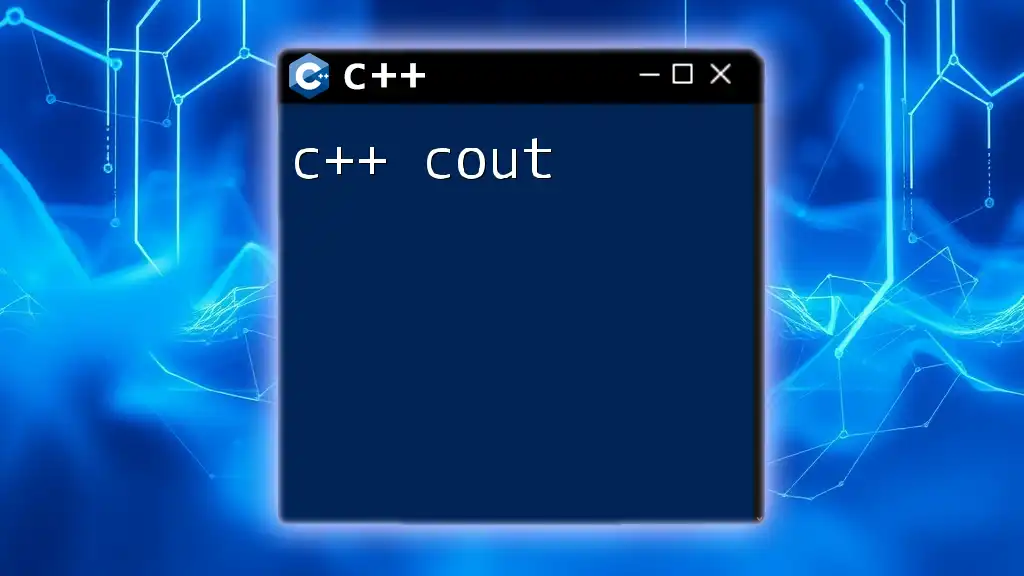
Setting Up Your Environment
Before diving into C/C++, you need to set up a development environment.
Choosing the Right Compiler
Selecting the right compiler is crucial for efficiently building your applications. Popular options include GCC (GNU Compiler Collection), Clang, and MSVC (Microsoft Visual C++). Each compiler has its own set of features and optimizations, making some more suitable for particular environments.
- Windows Users can easily install MSVC via the Visual Studio installer.
- ** macOS Users** can use Xcode or the Homebrew package manager to install GCC or Clang.
- Linux Users typically have GCC pre-installed or can easily install it using their distribution's package manager.
Integrated Development Environments (IDEs)
An IDE can simplify the coding process by offering features like debugging, syntax highlighting, and code completion. Popular IDEs for C/C++ development include Visual Studio, Code::Blocks, and CLion. Setting up your IDE often involves configuring the compiler paths and creating projects to organize your source files.
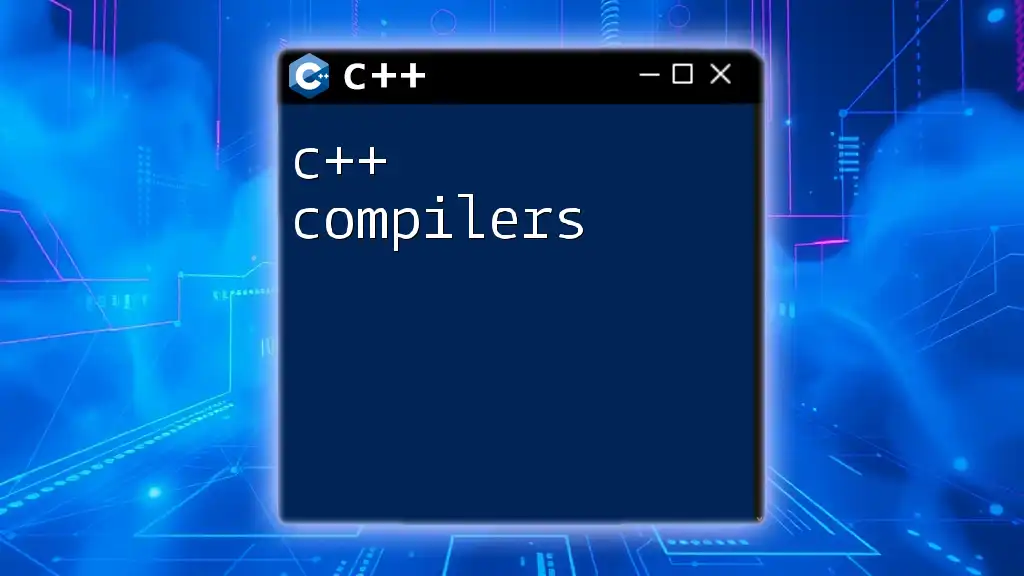
Basic Syntax and Structure
Writing your first C++ program helps familiarize you with the basic structure. Below is how a minimal "Hello, World!" program typically looks:
#include <iostream>
using namespace std;
int main() {
cout << "Hello, World!";
return 0;
}
This snippet includes:
- `#include <iostream>`: Incorporates the I/O stream library, allowing you to perform various input and output operations.
- `using namespace std;`: Lets you access standard library features without prefixing them with `std::`.
- The `main()` function, serving as the entry point for your C++ program.
Comments and Naming Conventions
Comments are essential for code readability. Use single-line comments with `//` and multi-line comments with `/* ... */`. Following best practices for naming variables helps create self-documenting code. Use meaningful names and adhere to conventions such as camelCase for variables and PascalCase for classes.
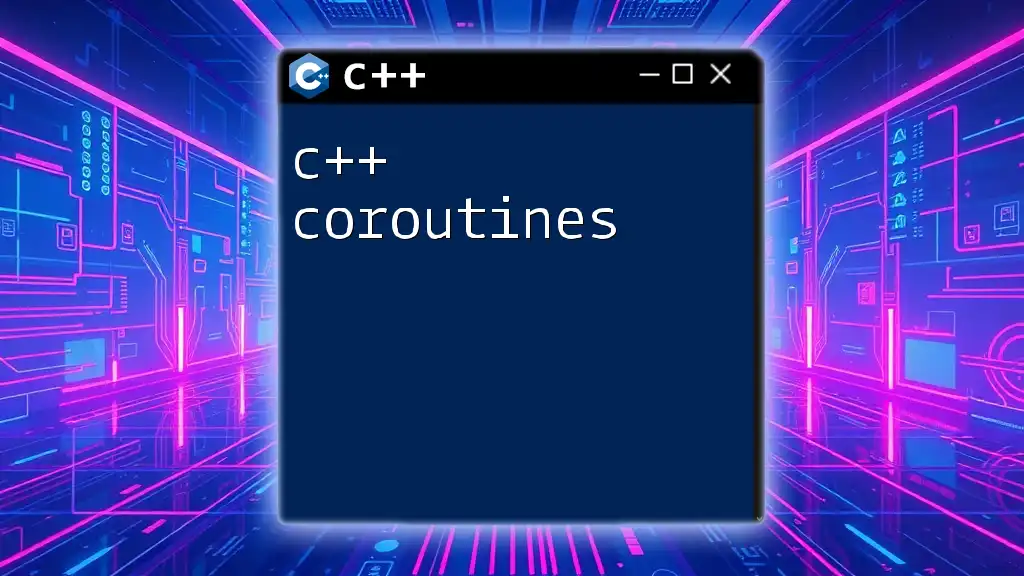
Data Types and Variables
Understanding data types is central to effective programming in C/C++.
Primitive Types
C/C++ offers several primitive data types, including:
- `int`: Represents integer values.
- `char`: Represents single characters.
- `float` and `double`: Represent floating-point numbers, with `double` offering greater precision.
User-defined Types
Besides primitive types, C/C++ allows defining custom types, such as `struct` for grouped data and `enum` for enumerated types, enhancing clarity and maintainability.
Variable Declaration and Initialization
Variables in C/C++ must be declared before use. Consider:
int age = 30; // Declaration and initialization
It's crucial to understand the scope and lifetime of variables, which define where and how long they can be accessed. Constants created with the `const` keyword let you create variables with fixed values.
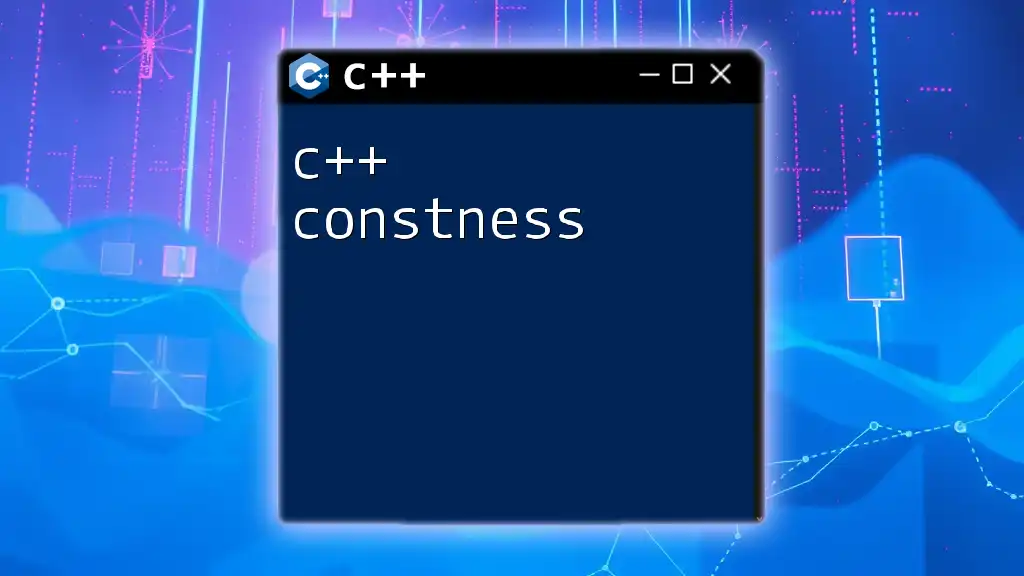
Control Structures
Control structures govern the flow of your program.
Conditional Statements
Conditional statements form the basis for decision making. An `if` statement looks like this:
if (age >= 18) {
cout << "Eligible to vote";
} else {
cout << "Not eligible";
}
A `switch` statement, useful for multiple conditions, can streamline your code.
Loops
Repetitive tasks are easily managed with loops. The `for` loop efficiently handles a range of values:
for (int i = 0; i < 5; i++) {
cout << i;
}
Alternatively, a `while` loop continues executing as long as its condition is true.
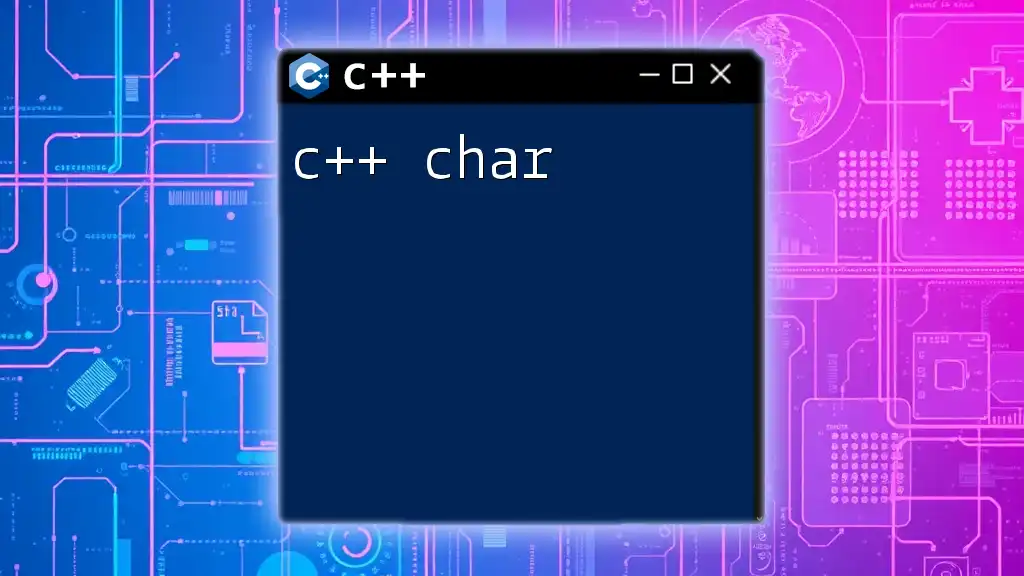
Functions and Parameter Passing
Functions encapsulate code for reuse, clarifying logic.
Defining Functions
A function that adds two integers can be declared and defined as such:
int add(int a, int b) {
return a + b;
}
Parameter Passing Techniques
There are two primary methods to pass parameters to functions: by value and by reference. Passing by reference allows modifications to the original variable, which is useful for avoiding unnecessary copies of large data structures.
void modifyValue(int& num) {
num += 10;
}
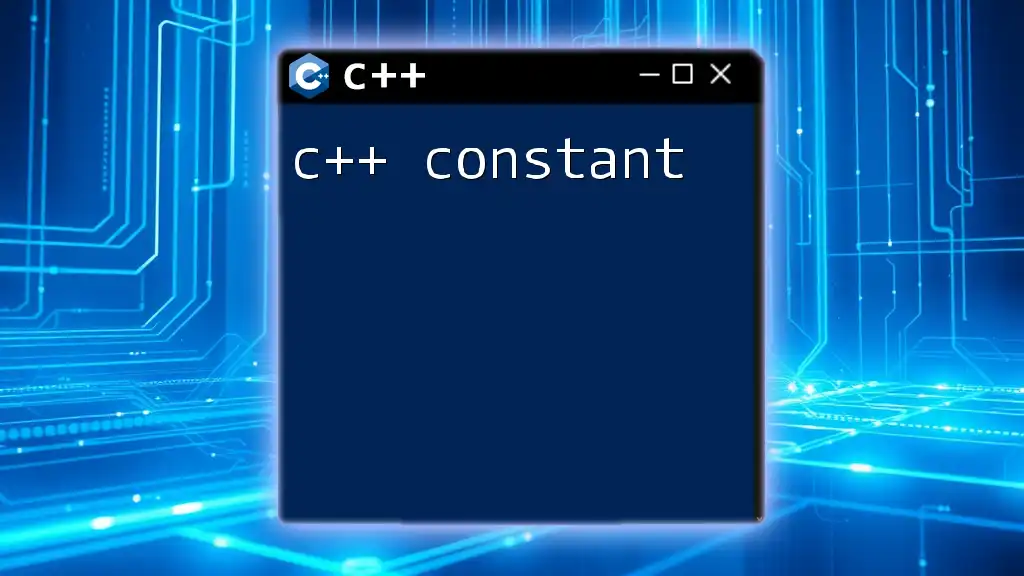
Object-Oriented Programming in C++
C++ shines in its support for OOP, offering a more organized approach to code structure.
Key Concepts of OOP
Key concepts in OOP include:
- Classes and Objects: Create blueprints for data and functionality. For instance:
class Dog { public: void bark() { cout << "Woof!"; } }; - Inheritance: Allows your objects to gain properties and behaviors from another class.
- Polymorphism: Supports methods to use the same name for different functions through inheritance.
Implementing OOP in C++
Constructors and destructors play crucial roles in initializing and destroying objects. Access specifiers (public, private, protected) control the visibility of class members, fostering encapsulation.
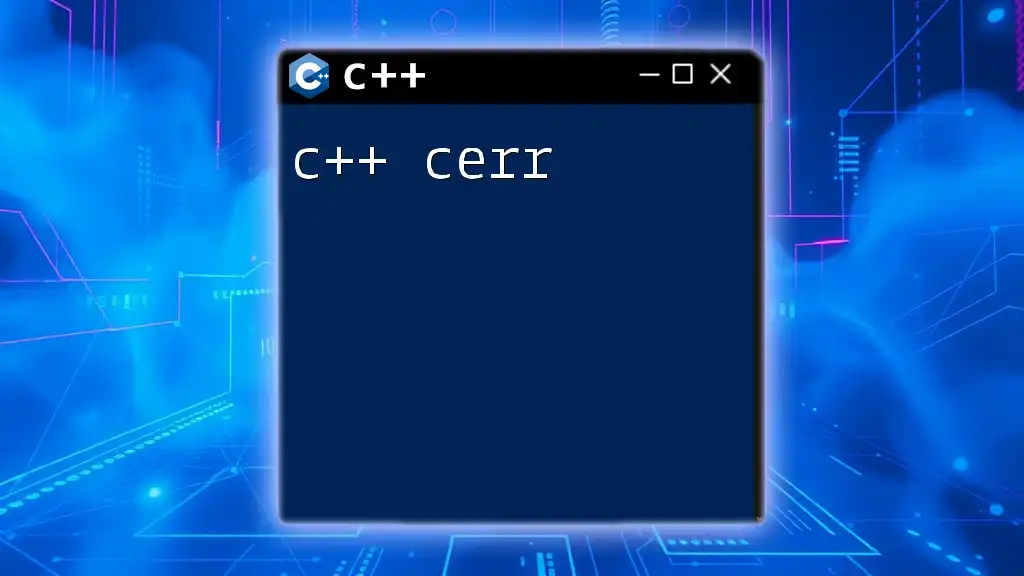
Advanced Topics
As you become more comfortable, you can delve into advanced features.
Memory Management
C++ offers precise control over memory management. Dynamic allocation uses `new`, while `delete` frees memory, crucial for preventing memory leaks:
int* ptr = new int;
delete ptr;
Exception Handling
Robust applications handle errors gracefully using exceptions:
try {
throw runtime_error("An error occurred");
} catch (const exception& e) {
cout << e.what();
}
This technique helps separate error handling from standard logic.
Using Standard Template Library (STL)
STL provides a suite of powerful tools for data structures and algorithms, including:
- Containers: such as `vector`, `list`, and `map` for data storage.
- Algorithms: for sorting and searching data efficiently.
- Iterators: for traversing through container elements.
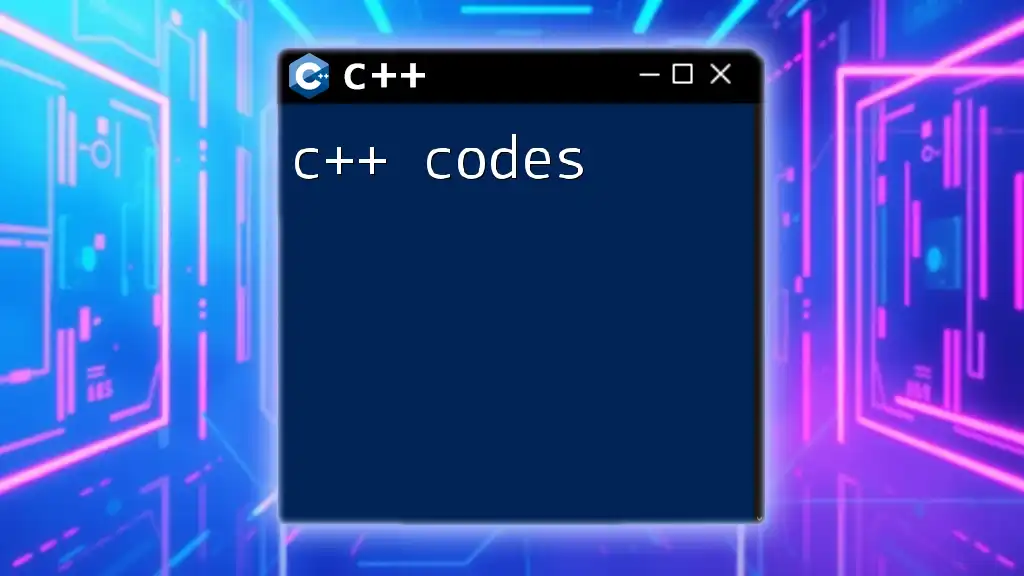
Best Practices in C/C++
Maintaining code quality is fundamental as it benefits long-term project maintenance.
Code Readability and Maintainability
Writing clean, readable code through consistent formatting and clear comments promotes collaboration and understanding among developers.
Performance Optimization
Understanding time complexity is essential for writing efficient algorithms. Always consider the scalability of your code and optimize accordingly.
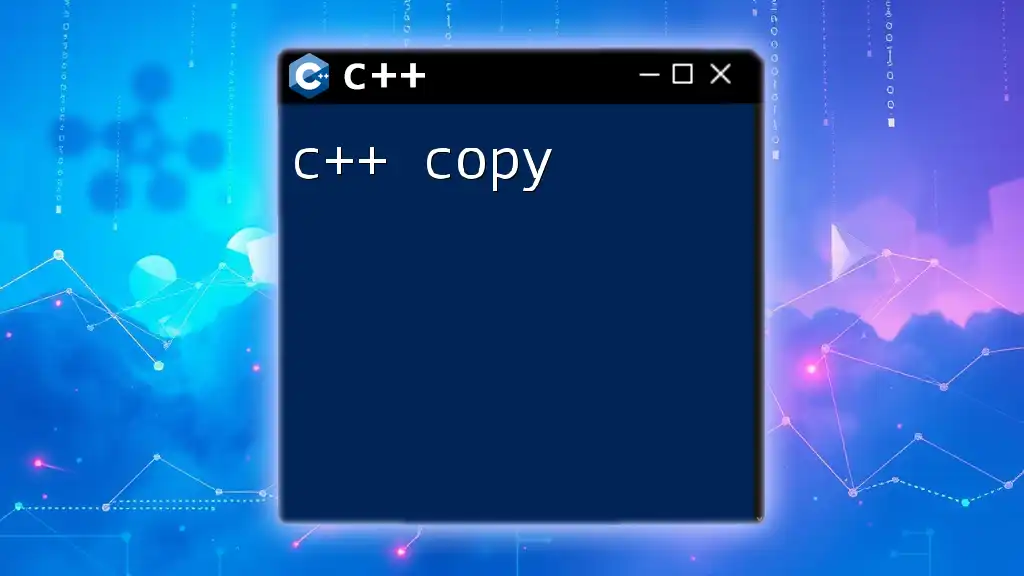
Common Pitfalls to Avoid
New learners often encounter common errors that can be avoided:
- Segmentation faults often stem from accessing invalid memory. Use tools like GDB for debugging.
- Memory leaks can occur from failing to release dynamically allocated memory; vigilant memory management is essential.
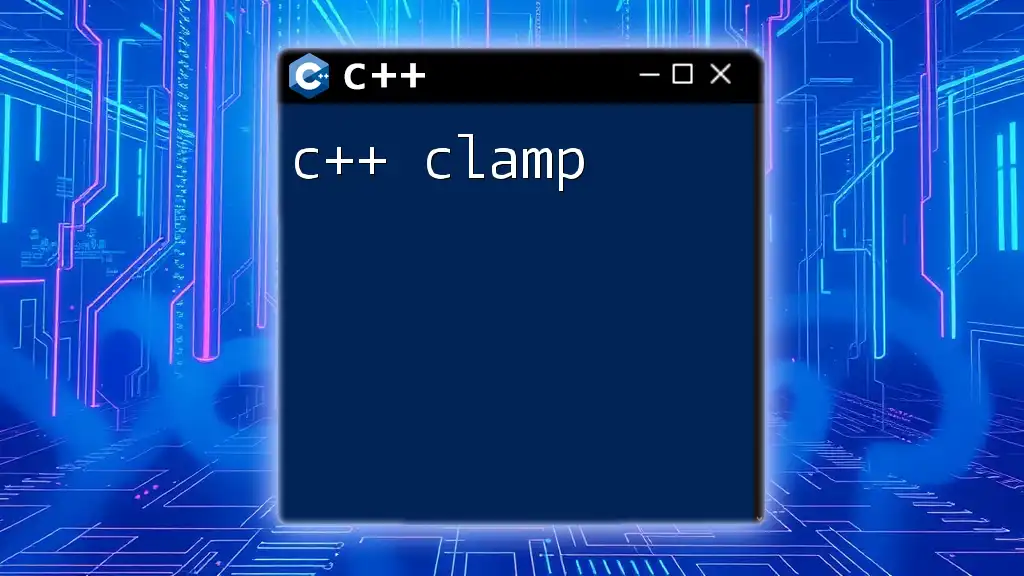
Conclusion
Through understanding the core components and practices in C/C++, you gain a robust skill set for pursuing programming in these languages. Continuous practice and project work will enhance your proficiency.
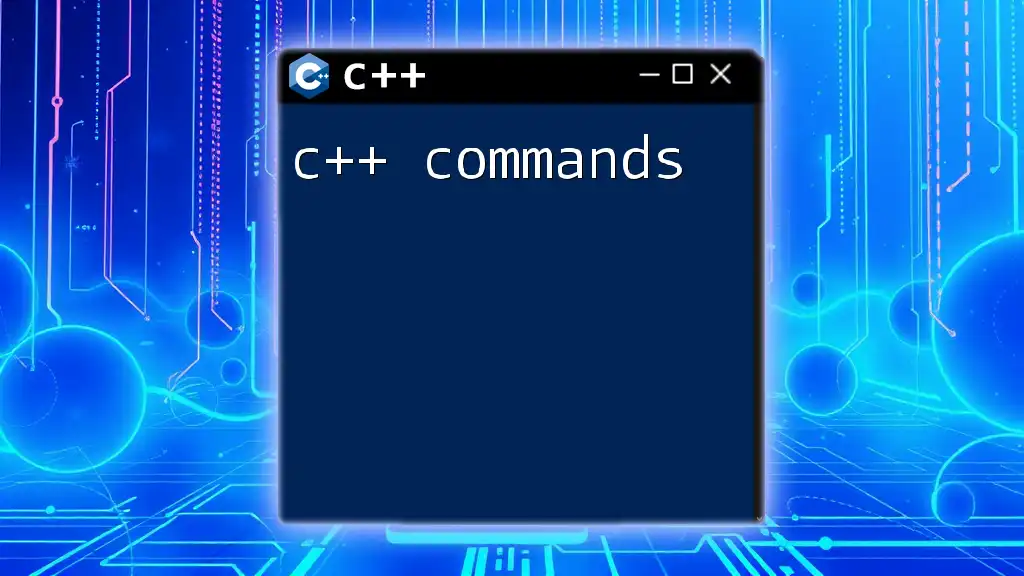
FAQs about C/C++
- What are the best resources for learning C/C++? Books, online tutorials, and coding platforms provide diverse resources for learning.
- How to choose between C and C++ for a project? Consider the project's requirements regarding performance, control, and complexity.
- Future of C/C++ in software development? C/C++ remain foundational in systems programming, game development, and performance-sensitive applications.
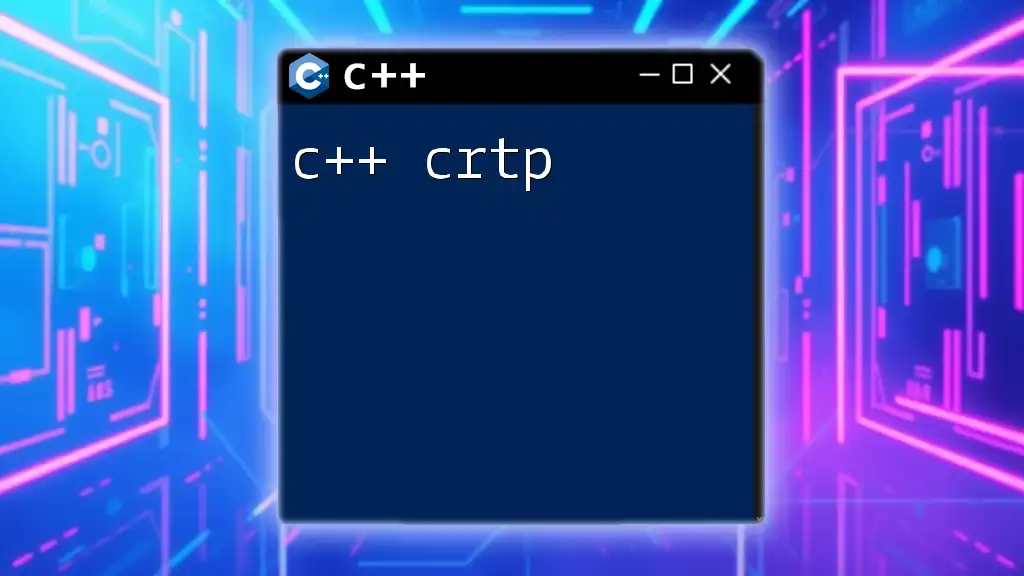
Call to Action
Start your journey in learning C/C++ today! Engage in practice, build projects, and harness the power of these languages in your development toolkit. Consider signing up for the comprehensive tutorials and courses we offer to fast-track your learning process.

